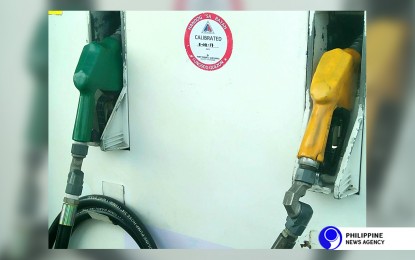
MANILA -- The Philippine Biodiesel Association (TPBA) has proposed to increase the percentage of the biodiesel component blended in locally available diesel to 5 percent by 2021 from the current level of 2 percent.
United Coconut Association of the Philippines (UCAP) chairman and TPBA spokesman Dean Lao Jr., in a press briefing on Thursday in Quezon City, said they are pushing for gradual upward adjustments in the percentage of biodiesel component -- 3 percent by end 2019, 4 percent by 2020, and 5 percent (B5) by 2021.
Blending coco biodiesel or coconut methyl ester (CME) in local diesel started in 2007 upon the implementation of Republic Act No. 9367 or the Biofuels Act of 2006. On the first year of the law, diesel was blended with 1 percent CME. It was increased to 2 percent in 2007 and has remained at that level since.
"The Philippines was the pioneer in Southeast Asia in blending biodiesel," Lao said. "But when Indonesia and Malaysia followed suit, they immediately jumped to 5 percent using palm biodiesel."
Indonesia is considering to increase its palm biodiesel by 30 percent as it is experiencing oversupply of palm oil.
"The Philippines can do the same with the oversupply of coconut oil, which is far more superior as a biodiesel feedstock compared to palm oil and other types of oil including soya bean oil, canola oil, and sunflower oil," said Department of Energy (DOE) adviser Rafael Diaz.
Diaz, however, said that increasing the CME blend may not lower pump price of diesel, "but the fuel savings translates to measurable mileage gain."
"Coco biodiesel makes diesel fuel burn easily and completely, leading to more power and mileage improvement. If there is a 10 percent mileage improvement and diesel cost is at PHP40 (per liter), you can effective4ly save PHP4 per liter," he noted.
The group further said increasing the coco biodiesel blend to 5 percent (B5) can translate to 350,000 tons of coconut oil consumption, which is about 29 percent of coconut oil production in a year.
At present, the country produces over 1.2 million tons of coconut oil. The proposed B5 of CME in automotive diesel from the current 2 percent will take almost a third of the local coconut oil production, thus ensuring a steady income for local coconut farmers. (PNA)
